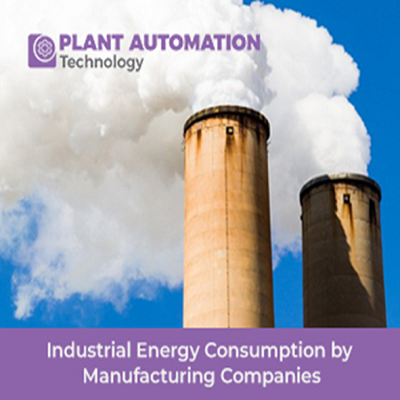Articles
Industrial Energy Consumption: Implications, Regional Variances, and Sustainability Measures

Introduction:
Industrial energy consumption is a significant driver of climate change, accounting for approximately one-third of global CO2 emissions in 2021. This article delves into industrial energy consumption. It examines its environmental impact, regional disparities in consumption levels, ongoing initiatives aimed at reduction, and measures implemented for sustainability. By addressing the critical matter of industrial energy use and its consequences for greenhouse gas emissions and environmental challenges, we gain valuable insights needed to construct a more sustainable future.
Data and examples:
Manufacturing companies and other industries within the industrial sector heavily rely on non-renewable sources, predominantly fossil fuels, for energy consumption. According to International Energy Agency (IEA) data from 2021, the industrial sector emits over 15 gigatons of CO2 annually, accounting for approximately one-third of global CO2 emissions. These staggering emissions underscore the significant impact of energy consumption on climate change and emphasize the urgent need for reduction measures.
Regional Variances in Industrial Energy Consumption:
While industrial energy consumption is a global issue, its distribution varies across regions and industries. Industrial energy consumption is growing in Asia, driven by manufacturing expansion. For example, in China, the manufacturing sector accounts for approximately 70% of total energy consumption. In Europe, energy-intensive industries like steel and automotive contribute significantly to overall energy consumption. South America's natural resources extraction and processing play a substantial role. Furthermore, in the United States, the manufacturing sector is the second-largest energy-consuming sector, accounting for approximately 22% of the country's total energy consumption. These regional variations highlight the diverse challenges and opportunities in addressing industrial energy consumption.
Additional reduction measures:
Reducing industrial energy consumption is crucial for mitigating climate change and addressing environmental challenges. While investing in energy-efficient equipment and technologies and implementing energy management systems are significant steps manufacturing companies can take to reduce the amount of energy they use. Process optimization involves analyzing and improving manufacturing processes to make them more efficient and less energy-intensive. This can include streamlining production workflows, reducing waste, and optimizing equipment usage. By implementing process optimization techniques, manufacturing companies can minimize energy usage and increase operational efficiency.
Another measure is waste heat recovery, which involves capturing and utilizing excess heat created during industrial processes. Instead of releasing this heat into the environment, companies can capture and repurpose it to generate electricity, heat water, or supply energy for other activities. Waste heat recovery eliminates additional energy sources and reduces total energy usage, contributing to energy conservation and sustainability.
Demand response programs reduce industrial energy consumption. These programs involve modifying energy consumption in response to demand fluctuations or grid restrictions. Manufacturing firms can voluntarily lower or adjust their energy use during peak demand periods. This reduces electrical system strain and reduces energy generation. By actively participating in demand response programs, industrial facilities contribute to overall energy conservation and grid stability.
Recent examples:
To illustrate recent efforts at reducing energy consumption, let's consider some examples. In addition to IKEA's €4 billion investment in renewable energy sources like wind and solar power in 2020, several other companies have also made significant strides. Unilever, a global consumer goods company, aims to source 100% renewable energy by 2030 and achieve net-zero emissions from its products by 2039. Similarly, General Motors, an automotive manufacturer, strives for carbon neutrality by 2040 and plans to use 100% renewable energy in its facilities by 2030.
These initiatives demonstrate the industry's ongoing commitment to reducing energy consumption and transitioning to sustainable practices. These companies are spearheading the transition to a more sustainable industrial sector through investments in renewable energy sources, energy-efficient technologies, and process optimization.
Potential Benefits of Reduced Industrial Energy Consumption:
A) Cost Savings: By implementing energy-efficient technologies and practices, manufacturing companies can significantly reduce energy consumption, saving money in the long run. Energy-efficient equipment, improved processes, and renewable energy sources can lower energy bills and operational expenses, positively impacting financial performance.
b) Job Creation: The transition to renewable energy sources and implementation of sustainable practices in the industrial sector can foster job creation in the renewable energy industry. As companies invest in renewable energy infrastructure, such as solar and wind farms, there is a growing demand for skilled workers for installation, maintenance, and operation. This transition to clean energy can support a green economy and provide employment opportunities.
c) Improved Air Quality: Industrial energy consumption often involves burning fossil fuels, releasing pollutants, and contributing to air pollution. By reducing energy consumption and transitioning to renewable energy sources, manufacturing companies can improve air quality and create healthier environments for the communities surrounding their facilities. This can benefit public health and the quality of life.
Conclusion:
Industrial energy consumption by manufacturing companies and the broader manufacturing sector is a critical issue that demands immediate attention. With its significant contribution to global CO2 emissions and environmental problems, understanding and addressing industrial energy consumption is vital for a sustainable future.
By embracing energy-efficient technologies, adopting renewable energy sources, and implementing sustainable practices, manufacturing companies can significantly lower their energy consumption and pave the way for a more sustainable future. Manufacturing companies, governments, and individuals' collective efforts to reduce energy consumption will mitigate climate change. This will also reduce pollution, and preserve our planet for future generations.







